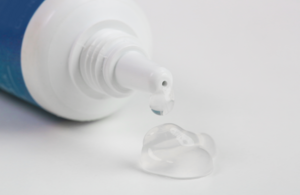Specific batches of carbomer-containing lubricating eye gels branded Aacarb, Aacomer and Puroptics recalled as a precaution due to possible microbial contamination
MHRA tells patients and healthcare professionals to stop using affected gels and retailers told to withdraw affected products.

Update: April 2024
The Medicines and Healthcare products Regulatory Agency (MHRA) are satisfied that carbomer-containing lubricating eye products available on the UK market are safe to use. Therefore, the action to ‘avoid the use of all carbomer-containing eye products in individuals with cystic fibrosis, patients being cared for in critical care settings, the severely immunocompromised and patients awaiting lung transplantation’ has been removed. All patients can now use carbomer-containing lubricating eye products, with the exception of the recalled products.
The other recommendations within the DSI remain.
The MHRA has today issued precautionary safety advice regarding possible contamination of certain eye gels and has told patients and users of the affected products to stop using them immediately. They should return their product to the place of purchase.
Anyone feeling unwell, for example with symptoms of eye infection, such as reduced vision, red and painful eye, should contact a healthcare professional and tell them that they have been using a recalled eye gel.
These types of products are known as carbomer-containing eye gels and are generally used to relieve the symptoms of dry eye. Those branded Aacarb, Aacomer and Puroptics, have a potential risk of microbial contamination, which can cause an infection if the gel is used.
Investigations are ongoing to determine if there is a link between the infections which have been identified and these products. The action is being taken as a precaution, and the risk to the general public is considered to be low.
Alison Cave, MHRA Chief Safety Officer, comments:
“Whilst the risk to users is low, we are taking precautionary action.
“All users of the affected products should stop using them immediately and return them to their supplier or retailer.
“If you have been using these gels, and if your eye symptoms worsen or you are worried about your health, please contact your healthcare professional, and tell them you have been using an eye gel that has been recalled.
“Retailers should, where possible, contact patients who have been dispensed any of the affected batches and ask them to return the product.
“We are working very closely with our colleagues at UKHSA and will issue further advice to protect patients and the public, if needed.”
Individuals with cystic fibrosis and patients with certain risk factors, are at higher risk of adverse effects from Burkholderia cenocepacia - the bacteria which may have caused the microbial contamination. As a precautionary measure, and until further information is available, the UK Health Security Agency (UKHSA) is additionally recommending that all carbomer-containing lubricating eye gels are avoided where possible in individuals with cystic fibrosis, patients being cared for in critical care settings (e.g. intensive care), those who are severely immunocompromised and in hospital, and patients awaiting lung transplantation.
The issue was identified as part of an ongoing investigation conducted by UKHSA after a small number of cases of infection were identified. UKHSA and MHRA investigations are ongoing and are not conclusive.
The MHRA is urging healthcare professionals, or anyone who suspects they may have become unwell after using these eye gels, to report it the agency’s Yellow Card scheme.
Ends
Notes to editors:
- The MHRA’s Device Safety Information notice is available here.
- The manufacturer’s field safety notice (FSN) issued to its customers is available here.
- Images of the products affected are available here.
- The Medicines and Healthcare products Regulatory Agency (MHRA) is responsible for regulating all medicines and medical devices in the UK by ensuring they work and are acceptably safe. All our work is underpinned by robust and fact-based judgements to ensure that the benefits justify any risks.
- The MHRA is an executive agency of the Department of Health and Social Care.
- For media enquiries, please contact the newscentre@mhra.gov.uk, or call on 020 3080 7651.